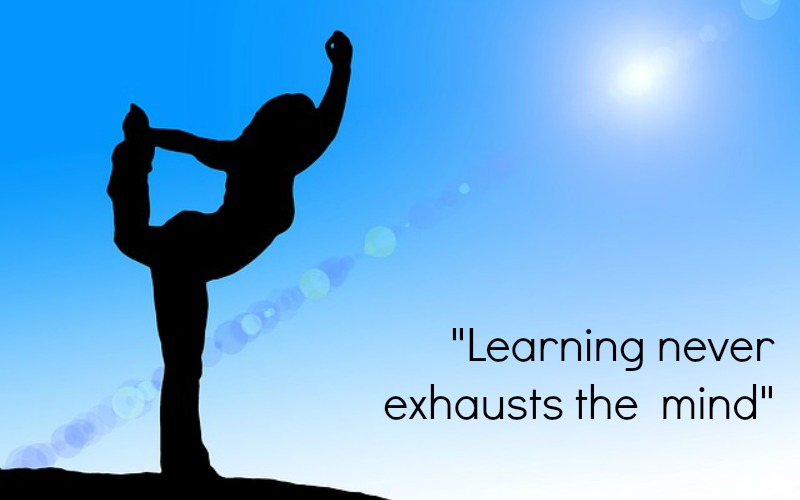
“You can’t teach an old dog new tricks.”
That’s the rationale behind a number of self-fulfilling reasons why we can’t pick up a new skill or try out a new software or program – because by a certain age, the art of learning and obtaining an ability that’s outside our comfort zone is just too overwhelming.
Of course! The only way to move forward is to embrace change and the new vehicles that carry us into the 21st century. If you’re always willing to learn new skills, you’ll be at the forefront of the competition — instead of playing “catch-up” to adapt to new procedures and technologies.
In the mad scramble of our daily responsibilities, it’s not uncommon to coast along in our comfort zone. However, if you let yourself get stuck on this one-way highway, it’s time to exit.
And the great news is you get to make that choice. No one can prevent you from learning something new, except for you.
“If you spend 30 minutes, every day, learning about one specific subject, you’ll become a legitimate expert in six months.” – Earl Nightingale
Need a real world example of how embracing new skills and technologies is essential for moving forward? Consider Facebook.
Ten years ago, just 12 million people – mostly college students and twenty-somethings – were using this new method of social media. Now that number is more than 1 billion. And it’s not 1 billion twenty-somethings sharing photos and messages about their weekend adventures with their friends.
Facebook and other social media platforms have become instrumental business tools. They help us stay connected to our current client base, attract new clients, and keep our web presence “up” in a new marketplace that’s reliant on Internet searches. Every legitimate business needs a Facebook page to stay ahead of the competition.
Yes. But was it worth it? Most definitely.
The simple fact is that the way the world processes information is always changing. These “new” technologies will soon become commonplace and standard procedure, just as Facebook is now something individuals and organizations use daily.
Of course you do! And it’s not as hard as you might think. Remember, it all starts with you making the choice to learn something new.
Here are a few tips that might help:
Build on an Existing Skill
Research has proven that if we connect new learning to prior knowledge, we learn much faster. Take an inventory of your current skills and see if there is one or two you know you can grow.
Imitate a Master
We’ve hit on this in previous posts — imitating the behavior of someone you admire is the first step toward incorporating that desirable behavior into your own.
Find the 20/80 Pareto Principle
You’ve probably heard something like this before — 20% of effort can produce 80% of results. Try to identify which 20% of learning a new skill will yield you the most results. For example, say you’ve decided to learn how to become a photographer and use photo editing software. Learning how to shoot photos well in the first place will yield you far more results than learning how to master the software.
Visualize Your Mastery
Visualize yourself after you’ve mastered your skill — think about how proud of yourself you’ll feel. In our photography example, imagine your photos displayed on the wall of a gallery or in a magazine.
Never Give Up
If you feel yourself losing interest, stop and ask yourself why. Is the new skill something you feel like you should learn but now you’re not enjoying it? Again, in our photography example, maybe you like learning photography but feel videography is more your style. If so, take what you learned from photography and transition it into videography. Just keep making progress.
However, if you are giving up because it’s “too hard” or you “don’t have time” or any myriad of other excuses, now is NOT the time to give up! It is more important than ever that you persevere and overcome these mental obstacles.
Why? Because I promise you, if you stay determined and master that skill, you will feel 1,000 times better than if you give up!
Ignore the”old dog” cliché – learning new tricks has nothing to do with age, or experience, or even inherent smarts.
I have an entire chapter of my book dedicated to why it’s important to master your craft – check it out WINology – World Class Performance!
Have you ever pushed yourself out of your comfort zone to learn a new skill? Let us know in the comments section below!
Image quote attribution: Leonardo da Vinci